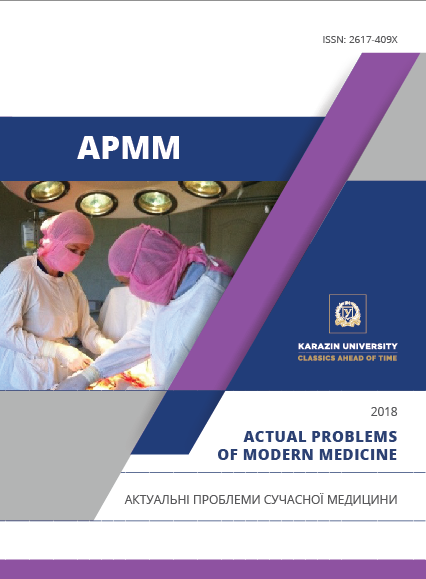INTERRELATION OF THE LOCALIZATION OF FOCI OF DEMYELINATION WITH THE SEVERITY OF COGNITIVE IMPAIRMENT IN PATIENTS WITH MULTIPLE SCLEROSIS
Abstract
Most investigation of the multiple sclerosis are devoted to the study of motor and sensory disorders. However, patients also are worried about cognitive impairment, which manifests in memory impairment, attention and reduced working capacity. The relationship between the severity of cognitive impairment and localization of foci of demyelination in patients with remitting multiple sclerosis had been investigated in the given work. It was examined 39 patients. The examination program included: anamnesis, neurological examination, neuropsychological testing and neuroimaging techniques. The MRI study was carried out on the 0.36 T i-Open Magnetic Resonance Imager with the introduction of the Tomovist contrast substance according to the standard test protocol in T1, T2 with a weighted image and FLAIR. Cognitive functions were studied using the international scale MMSE (Mini-mental state examination). Severity of neurological disorders was assessed by the extended disability score scale EDSS. The mean age was 38,9 ± 10,5 years. Disease duration ranged from 3 to 13 years, the average score according to Expanded Disability Status Scale (EDSS) 4,0 ± 1,86. Patients with remitting course of MS were divided into 2 groups depending on MMSE results: group 1 (without cognitive impairment) - patients with MMSE score 28-30 points, group 2 (pre-cognitive impairment) patients with MMSE score 23-27 points. Signs of cognitive impairment were detected in 61,5% of patients. The most pronounced cognitive impairments were in patients with foci of demyelinization subcortical to the temporal lobes of the brain hemispheres and in the corpus callosum. Cognitive impairment in group of patients with an insignificant degree of disability was noted mainly with localization of foci of demyelination in the corpus callosum.
Downloads
References
Alekseeva T.G. (2004) Cognitvine and emotional personality disorders in multiple sclerosis // Multiple Sclerosis and Other Demilitating Diseases M: Miklos, p. 199-216 (In Russian).
Bembeeva R.Ts. Cognitive impairment in multiple sclerosis // J. Nevrol. and psychiatrist. 2006. № 12. С.11-19 (In Russian).
Voloshin P.V., Mishchenko T.S, Lekomtseva E.V. Analyze pochirenostі zahvoruvanostі on nervovi painful in Ukraine // International Neurological Journal. 2006. P. 9-13 (In Russian).
Damulin, I.V.(2009) Secondary dementias (cognitive disorders in traumatic and neoplastic lesions of the brain, in infectious and autoimmune diseases) Moscow, 31p (In Russian).
Lebeyko T.Ya. (2002) Evaluation of intelligence in patients with multiple sclerosis using the Rorschach projective method. Materials scientific and practical. conf. of young scientists and students of the P.51-59 (In Russian)
Mineev K.K. On the question of the relationship of localization, volume and activity of foci of demyelination and cognitive impairment in multiple sclerosis // Neuroimmunology. 2007. Vol.5., №2. P.82-83
Trifonova OV, Zavalishin I.A., Gnezditsky V.V., Kashina E.M. Cognitive changes in patients with multiple sclerosis. Mat. 3rd Sib. interregion. scientific-practical conf. "Multiple sclerosis: current trends." Novosibirsk: Publishing house 2007. P. 68-70.
Schmidt, T. E. Cognitive impairment and attempts to correct them in multiple sclerosis // J. Nevrol. and psychoatr. 2005. № 9. P. 54-56.
Comi, G. Brain magnetic resonance imaging correlates of cognitive impairment in multiple sclerosis //J. Neurol. Sci. 1993.Vol.115. P. 66-73.
O'Connor, M.G. Neuropsychological investigations of multiple sclerosis: a clinical perspective // Clin neuro science. 1994. № 2(3–4). P. 225–228.
Pugnetti, L. MRI and cognitive patterns in relapsing - remitting multiple sclerosis // J. Neurol. Sci. 1993.Vol. 115. P. 59-65.




